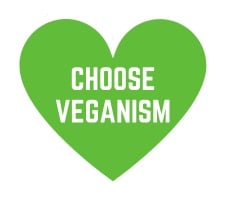If you quit eating meat, fish, eggs and dairy products overnight, then you’re probably going to experience some nasty side effects. Even if you’ve been vegetarian for years, a rapid switch to a vegan diet can cause your body to react in ways that you might not have expected.

The phrase ‘cold turkey’ was first used to describe what happens to people when they suddenly quit hard drugs. Just like a turkey in the fridge, they will be cold, pale, clammy and covered in goosebumps.
I’m not saying that you shouldn’t go vegan cold turkey if that’s what you want to do. I’m just saying that it’s wise to be aware of the possible vegan detox symptoms so that you don’t panic and reach for the nearest ham and cheese sandwich.
Is it bad to go cold turkey vegan?
Going vegan cold turkey can give you the push you need to make the switch, especially if you do it for Veganuary when you have the support of others and an end date in sight. But, if you want to go vegan for the long term, you’ll probably find it easier to make a series of small changes over time.
The Negative Side Effects of Going Vegan
Here are some of the symptoms that you may be experiencing if you’ve suddenly cut all meat, eggs and dairy from your diet…
1. Pooping more
It might not feel like it, but pooping five times a day (or even more) when you first go vegan is normal.
The vegan diet is typically very high in fibre and water. This adds bulk to your stools and makes everything move through your intestine more quickly.
You’ll probably find that the frequency of your bowel movements decreases after the first few weeks of being vegan. But, studies have shown that even long term vegans have around two extra bowel movements per week, compared to those who eat meat.
If you increase your fibre intake too quickly on a vegan diet, you may also find yourself suffering from diarrhoea, as your body just cannot cope with so much more fibre than it’s used to getting.
If this happens, cut back on the beans, lentils and pulses and instead opt for low-fibre vegan favourites like potatoes, soup and tofu.
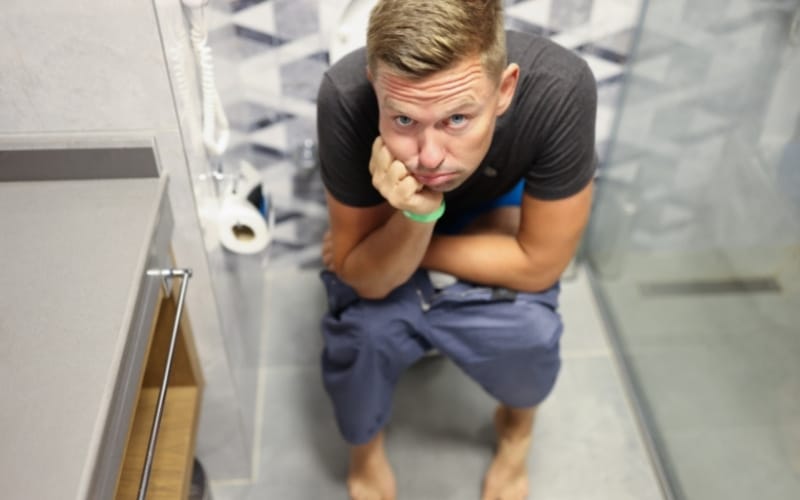
2. Farting a lot
“Beans, beans, they’re good for your heart, the more you eat the more you fart.”
Remember that song? Well, it’s true.
Beans and other high fibre foods are the prime cause of increased flatulence when you first go vegan. The good news is that it doesn’t last long. Once your body gets used to consuming more fibre your farts should return to the frequency that they were before you went vegan.
Sometimes, vegan farts can smell particularly bad. The main cause of smelly farts is sulphur. That’s what’s behind the nasty eggy smell.
Vegan foods that are rich in sulphur include cruciferous vegetables like broccoli and cauliflower, nuts, seeds, wholewheat pasta, wine and fruit juices. If you’re going on a date, you’ll probably want to limit these for at least a day before.
You can see a full list of high-sulphur foods here.

3. Bloating
Feeling bloated since you went vegan? You’re not alone. A common complaint of new vegans is that they wake up with a flat stomach but look six months pregnant by the evening due to trapped gas and water retention.
There are two main causes of bloating for new vegans: Increased fibre intake and an increase in salty, processed foods.
Processed foods cause your body to retain water, so try to limit the fake meats, vegan cheese and junk food.
The good news is that vegan boating doesn’t last long. To get back to normal faster, focus on drinking lots of water and eat some bananas for their bloat-fighting potassium content.
I also recommend that you take a vegan bloating supplement like Dr. Vegan Debloat & Detox which will help your body to eliminate any bloating or digestive discomfort.
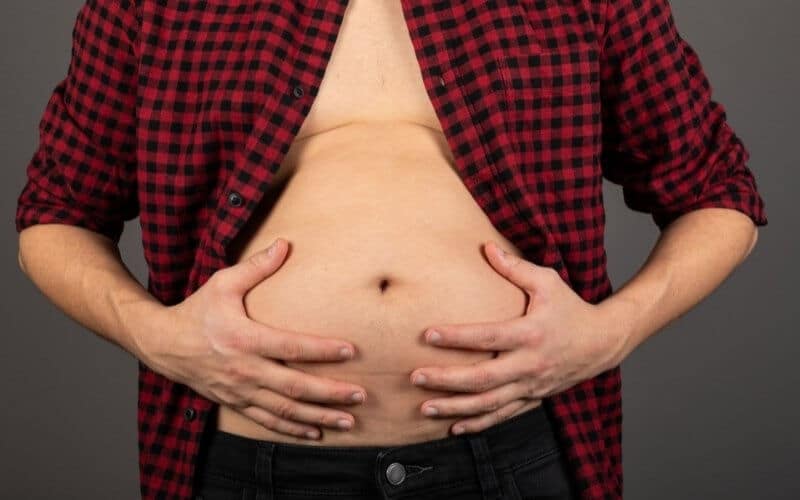
4. Headaches
When people suddenly get headaches after going vegan cold turkey, they worry that they’re deficient in vitamins like B12 and iron. While those can be the cause of headaches in some people, you probably already have nutrient stores that will last for months, so that could be a red herring.
If you’ve been eating a lot of salty, processed foods like fake meat, then dehydration could be one cause of headaches when switching to a vegan diet. Drink a pint of water per hour for three hours and if your headache disappears, you’ve found the problem.
Giving up caffeine suddenly is sure to cause headaches in most people. Did you give up coffee and fizzy drinks as part of your new healthy lifestyle? Again, this is an easy theory to test.
When you go vegan you’ll probably introduce a lot of new foods to your diet. One of these could be the cause of your headaches. Soy milk, peanut butter, legumes, yeast, sourdough bread and artificial sweeteners are all known to cause headaches in some people.
Finally, your vegan headaches could be caused by stress. Having to cook from scratch, plan your meals and the anxiety of having to explain your choices in social situations can all be stressful. So take it easy.

5. Weight loss
It’s common to lose weight when you first go vegan, and this may not be desirable if you’re already skinnier than you’d like.
Small changes like swapping the pepperoni on your pizza for vegetables will all add up, but if you’ve lost a lot of weight suddenly since going vegan, it’s likely that you’re just not eating enough.
Vegan meals can look like large portions, but they’re probably lower in calories than their meat-based equivalents. Plus, you’re less likely to reach for unhealthy snacks when your favourite chocolate, cakes and biscuits are off the menu.
To prevent unwanted weight loss when going vegan, make sure you’re eating at least three or four good-sized meals per day, plus snacks. Stock up on healthy but calorie-rich snacks like nuts and dried fruit so that you can be sure you’re not starving yourself.

6. Weight gain
Sometimes, people can hope to lose weight on a vegan diet but then find that the opposite is true as the numbers on the scales suddenly jump up. This can be very disheartening and you may feel like your so-called ‘healthy vegan diet’ just isn’t working for you.
The truth is that going vegan and trying to lose weight are each hard enough on their own without combining them with a double whammy! You’d be better off focusing on either weight loss or veganism, and nailing one before you tackle the other.
If you really do want to go vegan forever then forget about your weight for a few weeks. Just enjoy all the delicious plant-based vegan alternatives on offer without limiting your diet. Once you get used to being vegan, you’ll find it much easier to lose weight further down the road.
And remember what we discussed about bloating? Much of your weight gain could just be water retention caused by salty, processed foods. So, try to limit these while drinking lots of fluids to flush out your system.
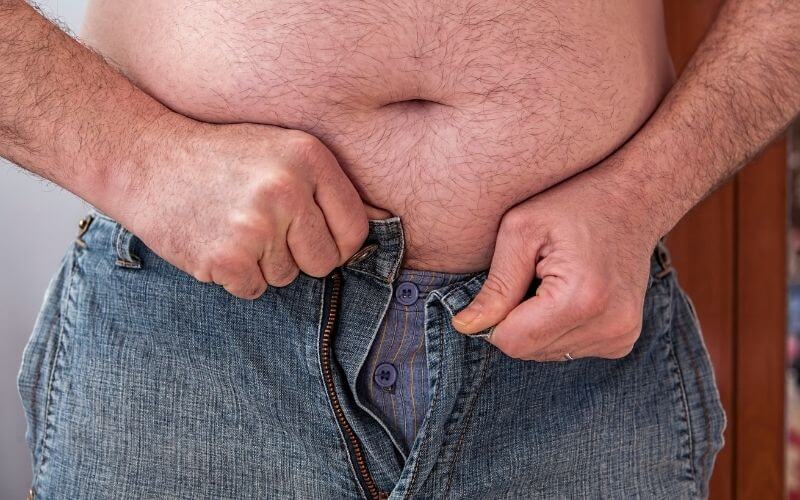
7. Lethargy
There can be many reasons why you feel tired since going vegan such as stress, disrupted sleep and nutrient deficiencies.
Nutrient deficiencies typically creep up on you over time, so it’s a good idea to take a vegan multivitamin supplement as soon as you change your diet. Another possible cause of feeling tired since going vegan is a protein deficiency, so try adding a scoop of vegan protein powder to your smoothies or oatmeal.
The best way to fight fatigue is often to eat healthily. Fresh fruits and green leafy vegetables are excellent natural energy boosters.

8. Acne
Eating dairy products is linked to acne so you might expect that when you go vegan your acne will improve. Yet some people are puzzled to find that they actually get worse acne after ditching the cow milk and cheese.
When it comes to acne, dairy doesn’t tell the whole story. Each person’s skin reacts differently to their environment. So for some people, acne may be exacerbated by fruits that are high in sugar, high-glycemic carbohydrates or even nuts and vegetable oils that are rich in Omega 6.
Try cutting out the common culprits and reintroducing them one at a time, carefully monitor what happens to your acne over time.

9. Skin rashes
When you go vegan you may experience dry and scaly skin, eczema or skin rashes. While it’s easy to blame your new diet for your skin complaints, be sure to also look at what you’re putting on your skin.
If you’re recently switched to a new cruelty-free laundry detergent, swapped your shower gel for an eco-friendly soap bar or are using a new moisturiser, this could be the cause of your rash or irritation.
If your skin is looking dry and lacklustre since going vegan, you should certainly up your water intake. Make sure that you’re getting enough protein and take a good multivitamin to stay topped up on nutrients.
Most multivitamins don’t contain any omega 3, but omega 3s are essential to keep your skin elastic and reduce moisture loss. A separate omega 3 supplement is a must for anyone on a plant-based diet.
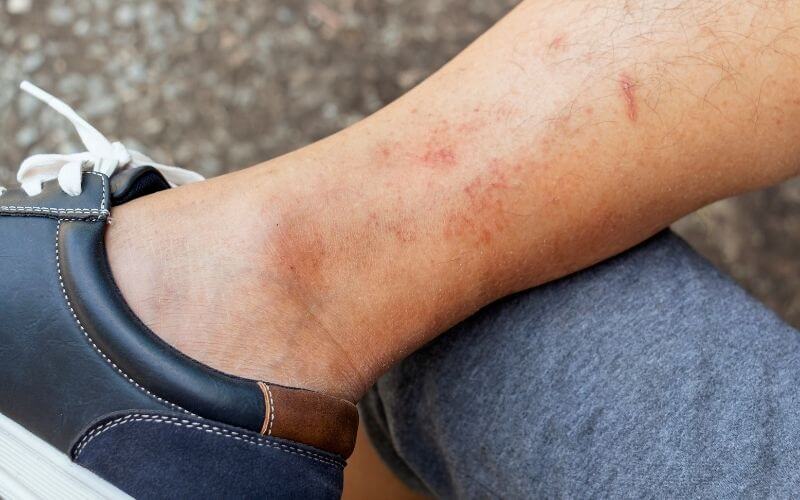
10. Trouble sleeping
Do you find yourself struggling to get to sleep or waking up after only a few hours and not being able to go back to sleep? Many people report sleep problems when they first go vegan.
Milk is a natural sedative. That’s why babies often go sleep straight after a feed! If you’ve been eating a lot of cheese in your evening meals and you suddenly stop that, it makes sense that you’d find it harder to fall asleep at night.
It’s easy to overestimate how many calories you’re eating on a vegan diet. And if you’re not eating enough calories you may find it takes longer to fall asleep and that you have reduced sleep quality when you actually do eventually go to sleep.

11. Feeling emotional
A well-balanced vegan diet doesn’t cause mental health problems. But, switching to a vegan diet cold turkey may cause you to feel sad, emotional or even depressed.
If you’re struggling with mental health problems you should always reach out to a qualified healthcare provider as well as a trusted friend or family member.
Pinpointing the cause of your emotional thoughts and feelings can be tricky. Think about whether you’re being stressed out by unsupportive family members, financial pressures caused by increased food bills or grief caused by learning about the suffering of animals.
Perhaps you’re disappointed that being vegan is so much harder than you thought or that it hasn’t led to the weight loss or energy boost that you hoped for?
You might not be able to put your finger on exactly what’s causing you to feel so emotional since you went vegan, so treat yourself with kindness, make sure you’re eating lots of healthy food and try to spend time doing what makes you happy.

12. Feeling hungry all the time
If you’re hungry all the time on a vegan diet you need to look at not only how much you’re eating, but what types of foods you’re eating.
If you eat a huge bowl of vegetables, then the chances are that you’ll feel hungry again after a couple of hours. That’s because fruits and vegetables are made primarily of water. Certain types of carbohydrates can also cause a spike in your blood sugar, followed by a crash that leaves you hankering for more food.
If you want to feel fuller for longer on a vegan diet, be sure to eat a variety of high-protein foods like tofu, quinoa, brown rice, peas, beans, lentils and legumes. If you’re hungry between meals, a vegan meal replacement shake can be enjoyed as a snack. This is an easy way to add protein and essential nutrients to your diet.
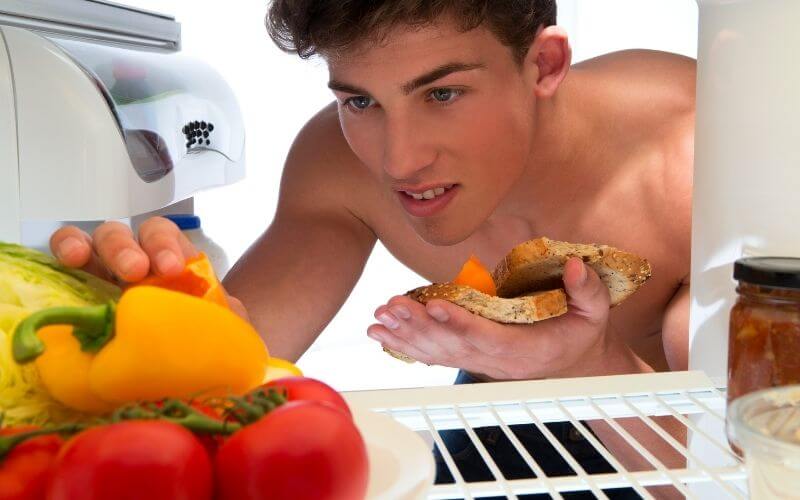
13. Cravings
You might have heard that cheese is more addictive than crack. Well, that may be an exaggeration, but studies have shown that cheese is addictive.
The reason that so many new vegans find cheese the hardest thing to quit is that cheese contains a high concentration of casein. When digested, this protein breaks down into smaller compounds called casomorphins. These attach to the dopamine receptors in your brain in the same way as cocaine, causing you to experience feelings of pleasure.
The more casomorphins your brain is exposed to, the more pleasure you experience. So quitting cheese cold turkey can lead to unpleasant feelings and strong cravings.
While many foods like mayonnaise have excellent vegan versions that taste exactly the same, this isn’t true of cheese. This is why the most successful vegans avoid vegan cheese altogether for at least three months before their brain is able to accept the taste of it without comparing it to dairy cheese.
If you’re experiencing strong food cravings since going vegan, you should definitely look for vegan versions of your favourite snacks. You might need to sample a few brands before you find one that hits the spot, but over time your cravings will ease without a doubt.

How to Prevent or Cure Vegan Detox Symptom
If you want to make going vegan as easy as possible and avoid any negative side effects, the best way is to do it gradually. Start with one vegan meal each day and gradually switch out animal products for vegan alternatives, one at a time.
It sometimes makes sense to want to go vegan cold turkey. If you’re doing Veganuary, for example, you won’t have long to prepare between Christmas and the first of January.
The good news is that you can definitely lessen the side effects of going vegan cold turkey. Here’s how…
Eat a large variety of different foods
Going vegan should never be about just removing things from your diet. Instead, you should take this as an opportunity to sample all of those fruits, vegetables, grains, beans, pulses and legumes that you would usually bypass in the supermarket.
If you try lots of different foods, you’ll find that you’ll eat more, which will ensure that you have enough energy. It’ll also keep you from overloading on one particular food group, like starchy carbs, which could play havoc with your digestive system.
Limit the vegan junk food
When you first go vegan it can certainly be tempting to stock up on vegan burgers, sausages and fake cheese. And while it’s good to try these things, they should be seen as a treat, rather than something that you eat every day.
Drink plenty of water
It’s always good to drink at least eight glasses of water per day, but this is even more important if you suddenly change your diet to become plant-based. Water is key for good digestion, it will help to prevent headaches and can keep you from feeling hungry between meals.
Make sure you’re eating enough
So many new vegans accidentally eat too little because they bulk up on low-calorie vegetables. To keep your energy levels high, keep an eye on your protein intake and be sure to include high-calorie snacks like nuts and smoothies.
Supplement with a vegan multivitamin
A balanced vegan diet should give you all of the vitamins and minerals that you need, with the exception of B12. Vitamin B12 is a nutrient that is naturally found in soil. Since humans began washing vegetables, we don’t get enough of it in our diets.
Animal feed has added B12, which is how it reaches the humans who consume animal milk and flesh. So, every vegan should definitely be taking a B12 supplement.
To make sure that you’re also getting enough iron, calcium and vitamin D, I’d recommend taking a daily vitamin pill. I’ve tried all the most popular ones, so if you want to find one that does smell or taste bad then check out my guide…
Suggested read: The Best Multivitamins for Vegans
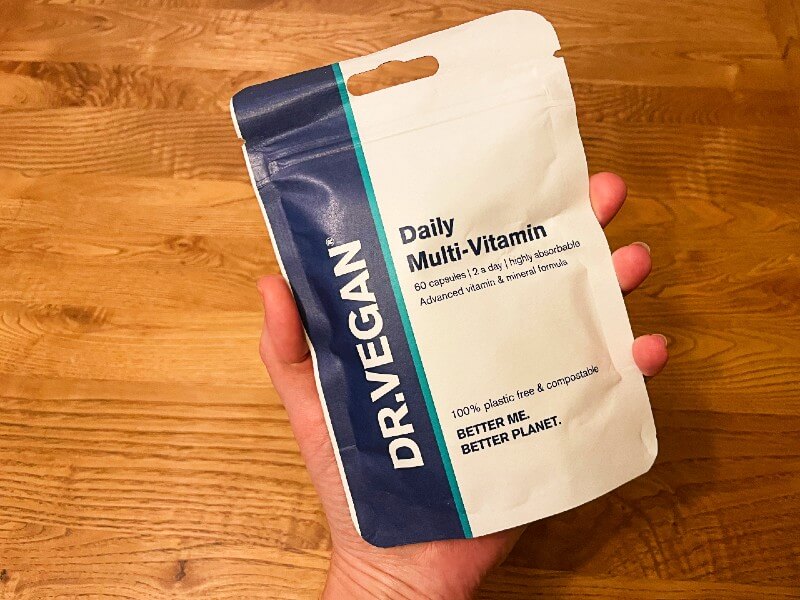
Take live probiotics
If you’re struggling with gut problems since going vegan, you’ll likely benefit from taking probiotics containing live bacteria and yeasts.
There are many different kinds of probiotics and as they’re classed as a food rather than a medicine, they’re not regulated. Many probiotics don’t contain enough bacteria to have an effect or the bacteria will have died off long before they reach your gut.
Instead of laboratory-made probiotic supplements, many vegans swear by kombucha – a natural, fermented drink made from green or black tea.
Take a supplement to help your body detox
I swear by Dr. Vegan Debloat & Detox. These science-backed capsules contain all-natural ingredients like milk thistle, fennel, dandelion, artichoke and L-Glutamine that will purify your liver and rid you of any digestive discomfort or bloating.
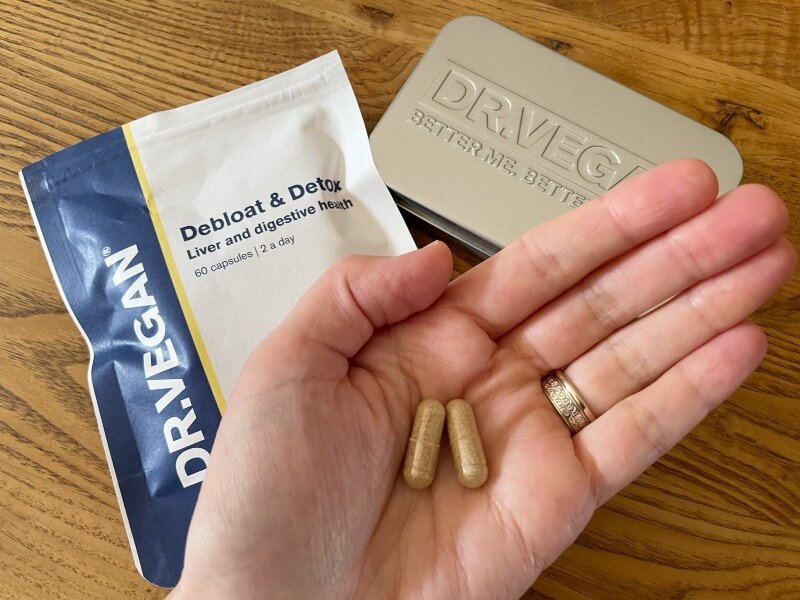
Do more exercise
Exercise can feel like the last thing you want to do when you’re feeling run down and sluggish, but it’s a great way to boost your energy. Physical movement will help your gut function, your mental health and help you to sleep better.
If you don’t feel up to it, a gentle walk in nature is a great way to start.
Give it time
The most important advice I could give you if you’re struggling to go vegan cold turkey due to the unwanted side effects is to be kind to yourself and give it time. Your unpleasant symptoms will all have disappeared within a month or two as your body gets used to your new diet.
If you can’t stick it out that long, it’s not the end of the world. I tried and failed many times before finally going vegan for good. I’ll admit that for my first two Veganuarys, I didn’t make it to the end of the month.
If you fall off the wagon, don’t beat yourself up about it. You have your whole life to go vegan. Today is just one day.
FAQs about going vegan cold turkey
The vegan diet isn’t a detox diet, but new vegans may experience some detox symptoms such as bloating, headaches, gas, low energy and sleep problems. These symptoms should only last for one to two months.
When you go vegan cold turkey it can take between two weeks and two months for your body to adjust. The exact timing will depend on what you were eating before and how different your new vegan diet is.
A rapid switch to a vegan diet with no transition period can make people feel sick. Going vegan cold turkey can be the cause of bloating, stomach cramps, headaches, lethargy and sleeping issues.
